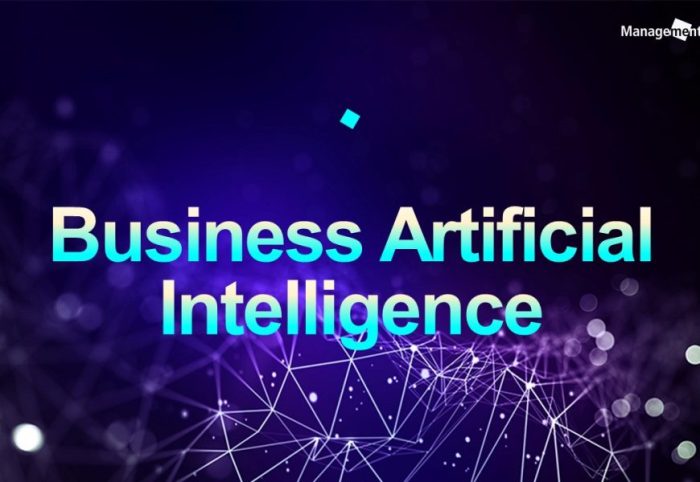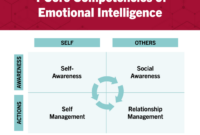Business artificial intelligence (AI) is rapidly transforming the business landscape, offering businesses unprecedented opportunities to enhance efficiency, improve decision-making, and elevate customer service. From automating mundane tasks to powering advanced analytics, AI is reshaping industries and paving the way for a more intelligent and interconnected future.
As businesses embrace the power of AI, it’s crucial to understand the different types, applications, challenges, and best practices associated with its implementation. This comprehensive guide will delve into the intricacies of business AI, empowering you to harness its potential and drive innovation within your organization.
To make the most of business artificial intelligence, businesses need skilled professionals who can interpret data and provide actionable insights. If you’re interested in a career in this field, consider exploring how to become a business intelligence analyst. By leveraging AI’s analytical capabilities, you can gain valuable insights that drive business growth and innovation.
1. Definition and Overview

Business artificial intelligence (AI) refers to the application of AI technologies in business settings to automate tasks, improve decision-making, and enhance customer experiences. AI-powered systems can analyze vast amounts of data, identify patterns, and make predictions, enabling businesses to operate more efficiently, optimize processes, and gain a competitive advantage.
Examples of AI in business include:
- Chatbots for customer service and support
- Fraud detection and prevention systems
- Inventory management and optimization
- Predictive analytics for forecasting demand and trends
2. Types of Business AI
There are various types of business AI, each with its own strengths and applications:
Machine Learning
Machine learning algorithms learn from data without explicit programming, enabling AI systems to identify patterns, make predictions, and improve performance over time.
Natural Language Processing (NLP)
NLP AI systems understand, interpret, and generate human language, allowing businesses to automate tasks like sentiment analysis, chatbot interactions, and document summarization.
Computer Vision
Computer vision AI systems analyze and interpret visual data, such as images and videos, to automate tasks like object detection, facial recognition, and quality control.
Harness the power of business artificial intelligence to drive growth. With the integration of business analytics and business intelligence solutions , businesses can gain valuable insights into their operations, customers, and market trends.
By leveraging AI-powered tools, companies can automate tasks, improve decision-making, and optimize their processes, ultimately leading to increased efficiency and profitability.
3. Applications of Business AI
Businesses have successfully implemented AI in various ways:
- Walmart uses AI to optimize inventory management, reducing out-of-stock items and improving sales.
- Amazon’s Alexa voice assistant uses NLP to provide personalized recommendations and control smart home devices.
- Netflix uses AI to recommend movies and TV shows based on user preferences, increasing viewer engagement.
Potential benefits of AI for businesses include:
- Increased efficiency and automation
- Improved decision-making based on data insights
- Enhanced customer service and personalized experiences
- New product and service innovations
4. Challenges and Considerations
Implementing AI in businesses presents challenges:
Data Privacy
AI systems require vast amounts of data for training and operation, raising concerns about data privacy and security.
Ethical Concerns
The use of AI raises ethical questions, such as potential job displacement and algorithmic bias, which need to be addressed responsibly.
Skilled Professionals, Business artificial intelligence
Implementing and maintaining AI systems requires skilled professionals with expertise in AI, data science, and software engineering.
Business artificial intelligence (AI) is revolutionizing industries, and businesses are taking notice. From customer service to marketing, AI is being used to improve efficiency, accuracy, and productivity. Businesses using artificial intelligence are seeing significant returns on their investment, and it’s clear that AI is here to stay.
As AI continues to develop, we can expect to see even more innovative and groundbreaking applications in the business world.
To overcome these challenges:
- Establish clear data privacy and security policies.
- Consider the ethical implications of AI and implement responsible AI practices.
- Invest in training and development to build a skilled AI workforce.
5. Future Trends
Business AI is rapidly evolving, with emerging trends:
- Increased adoption of AI in cloud-based platforms
- Development of AI-powered autonomous systems
- Integration of AI with other emerging technologies like IoT and blockchain
AI is expected to shape the future of business by:
- Automating routine tasks and freeing up human workers for more creative and strategic roles
- Providing businesses with real-time insights to make better decisions
- Creating new business opportunities and driving economic growth
6. Industry-Specific Applications
AI has diverse applications across industries:
| Industry | Example | Use Case |
|---|---|---|
| Healthcare | AI-powered medical diagnosis | Assisting doctors in diagnosing diseases and predicting patient outcomes |
| Finance | AI-driven fraud detection | Identifying suspicious transactions and preventing financial losses |
| Retail | AI-based personalized recommendations | Providing tailored product recommendations to customers based on their preferences |
| Manufacturing | AI-enabled predictive maintenance | Monitoring equipment and predicting potential failures to prevent downtime |
7. Ethical and Societal Implications

The use of AI in business raises ethical considerations:
- Job displacement: AI automation may lead to job losses in certain industries.
- Privacy concerns: AI systems collect and process vast amounts of data, raising privacy issues.
- Algorithmic bias: AI algorithms may exhibit bias if trained on biased data.
AI’s potential impact on society:
- Increased efficiency and productivity
- Improved access to goods and services
- New ethical challenges and the need for responsible AI practices
8. Best Practices for Implementation
- Define clear business objectives for AI implementation.
- Collect and prepare high-quality data for training AI models.
- Select the appropriate AI technology and algorithms for the specific task.
- Monitor and evaluate AI models regularly to ensure performance and accuracy.
- Address ethical and privacy concerns responsibly.
- Foster a culture of AI literacy and understanding within the organization.
Final Thoughts: Business Artificial Intelligence
In conclusion, business artificial intelligence is not merely a buzzword but a transformative force that is reshaping the way businesses operate and compete. By embracing AI and implementing it strategically, organizations can unlock a wealth of benefits, including increased productivity, improved decision-making, enhanced customer experiences, and a competitive edge in the ever-evolving digital landscape.




